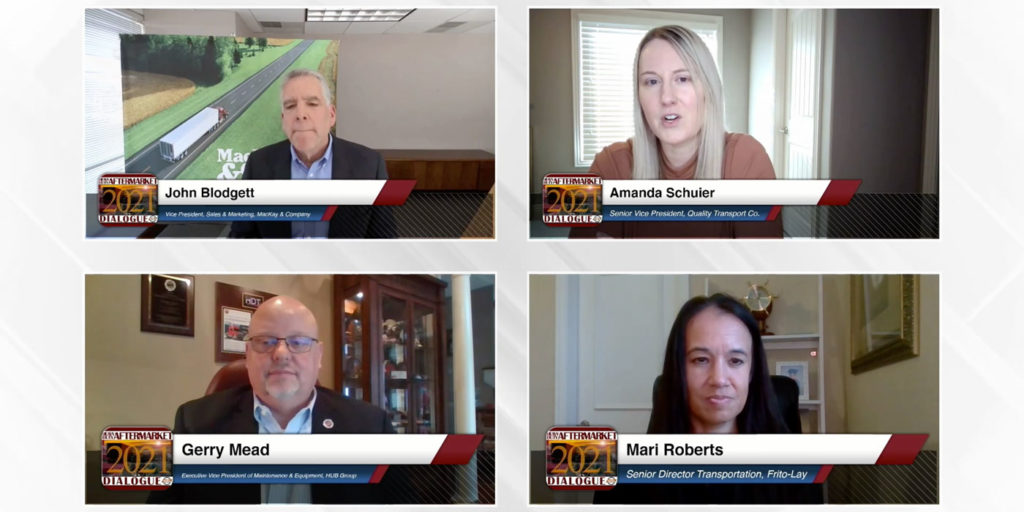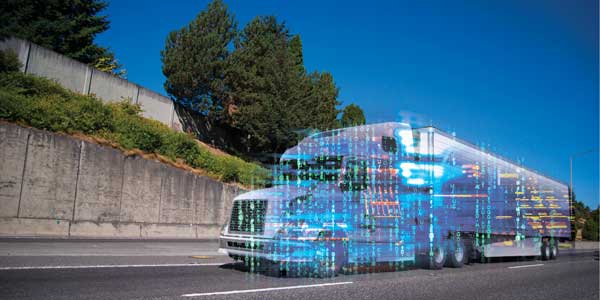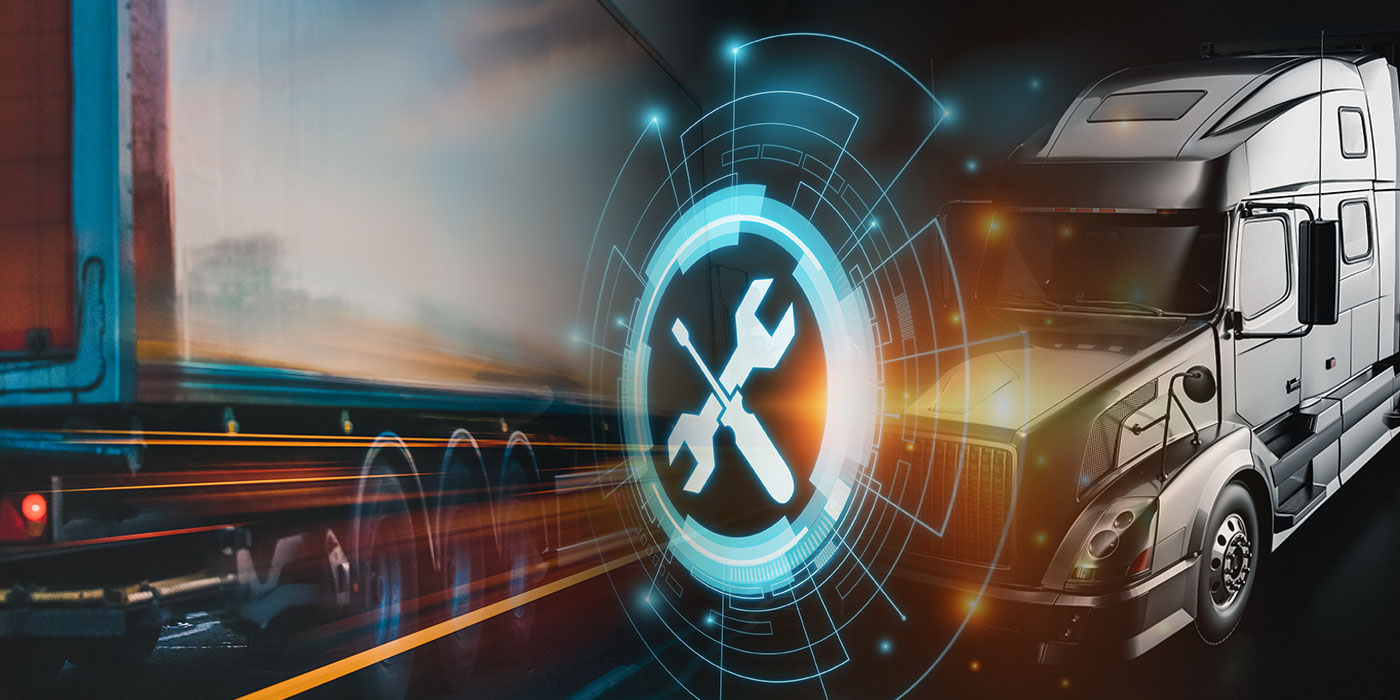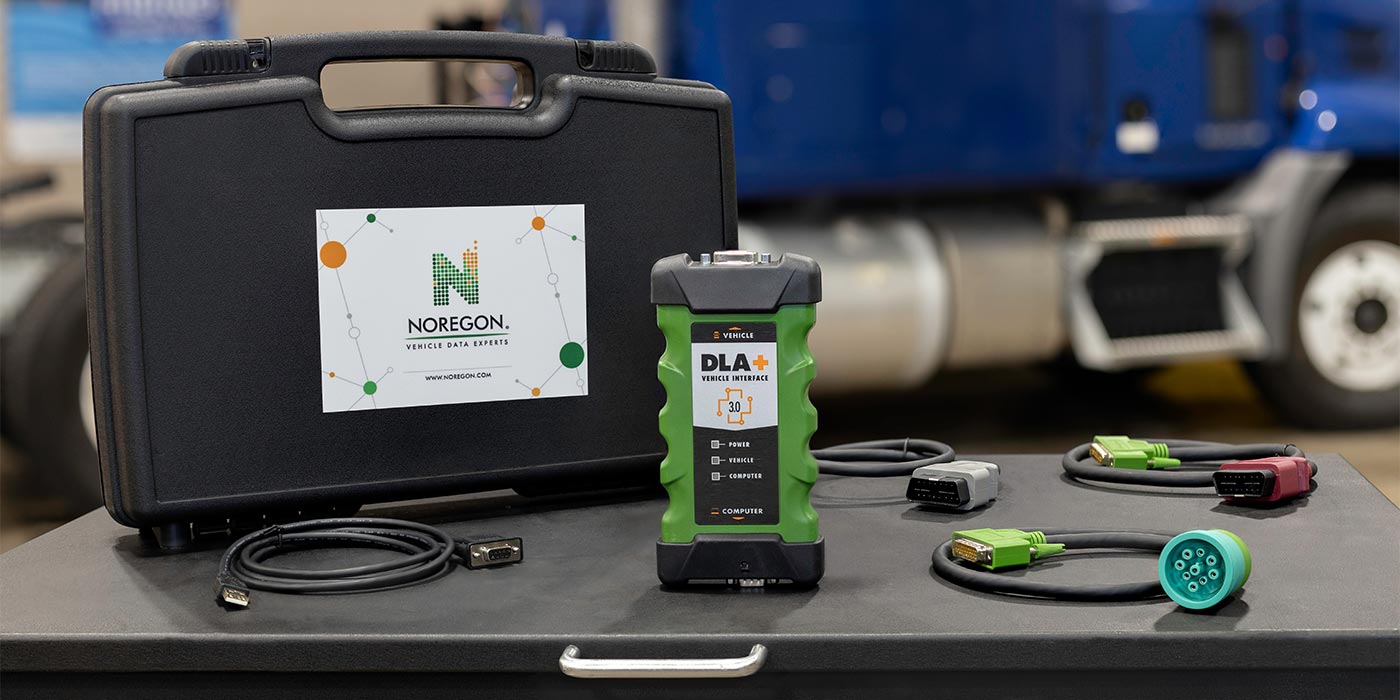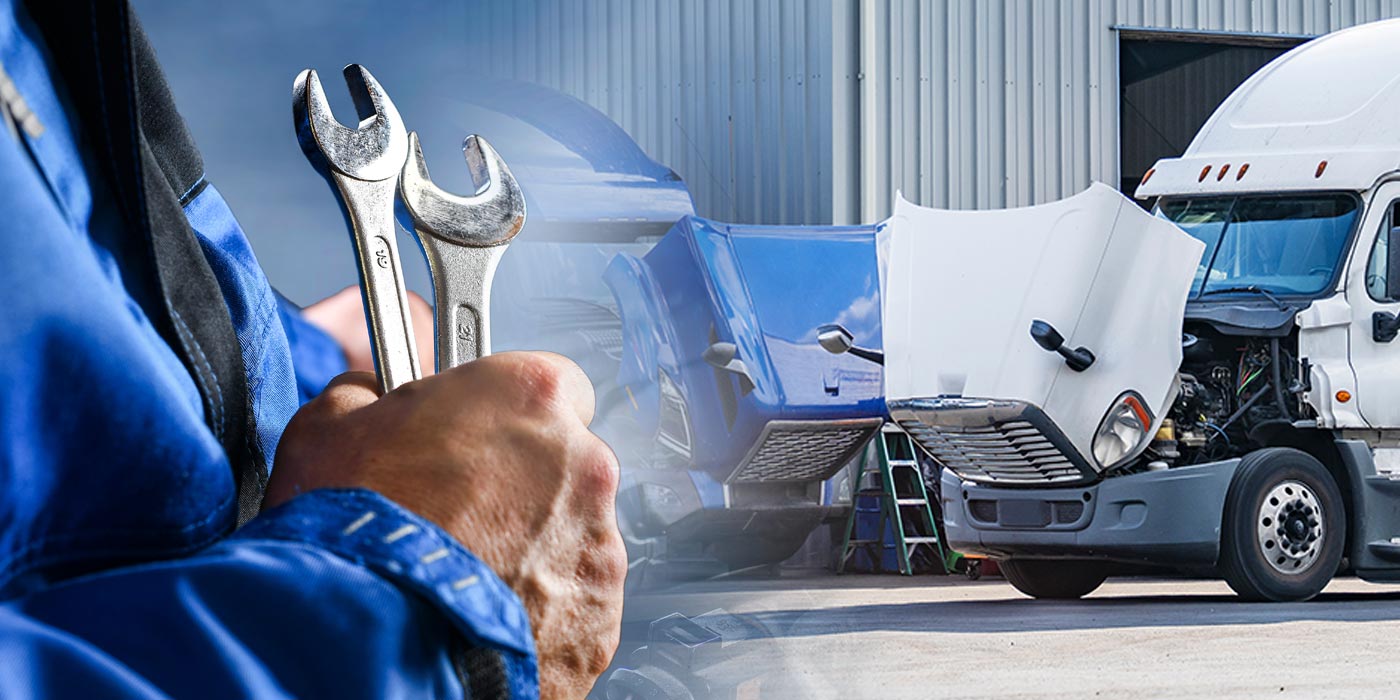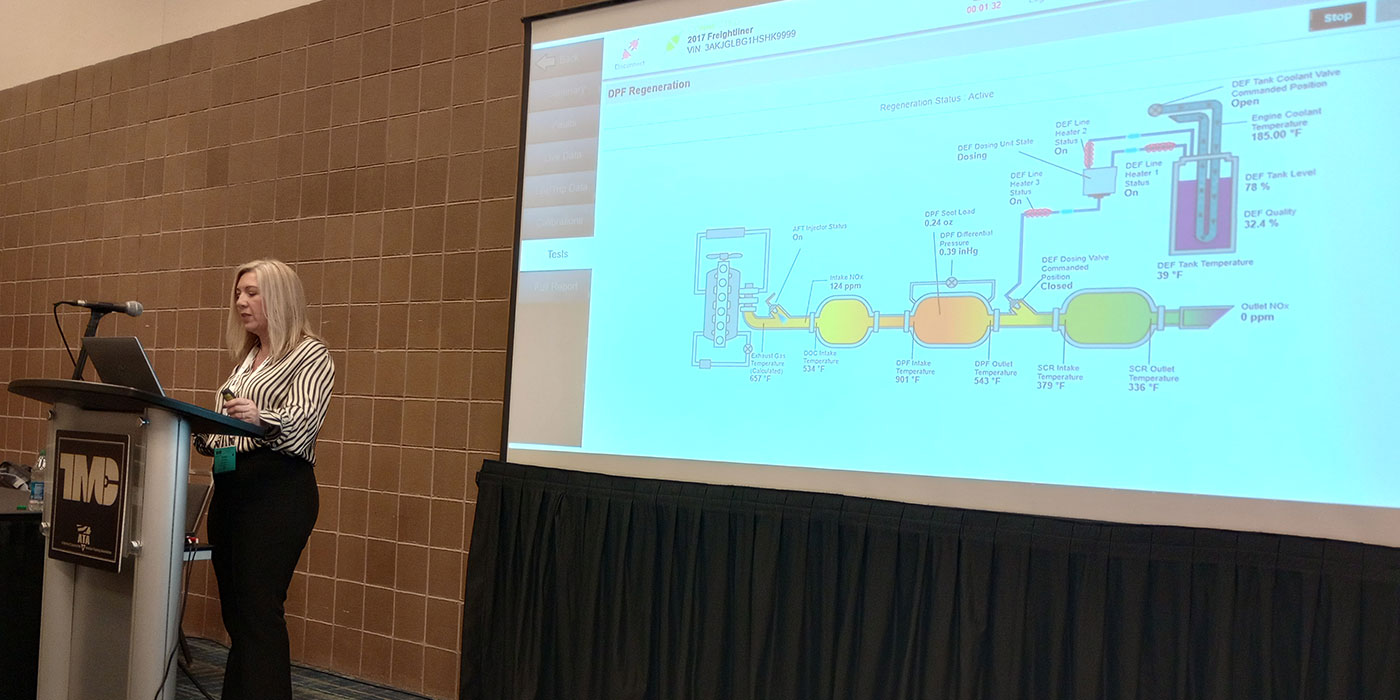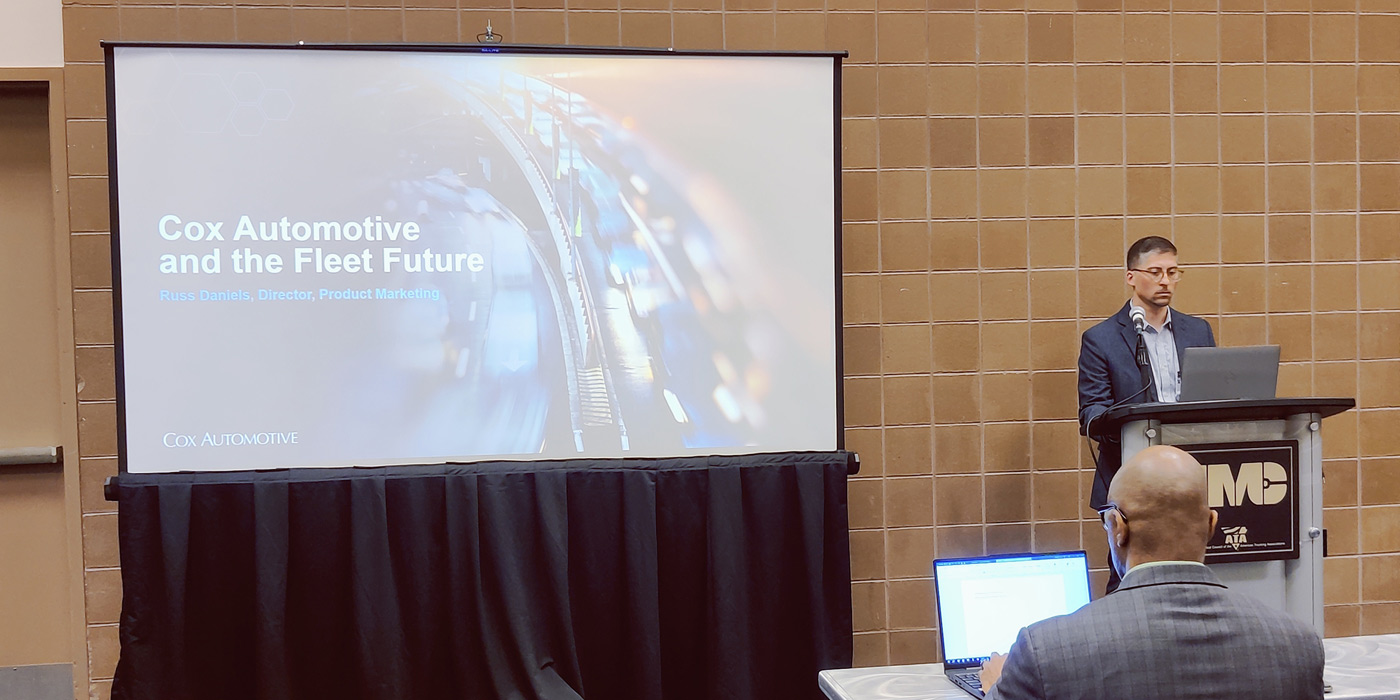The annual Heavy Duty Aftermarket Week (HDAW) is proceeding virtually this year, and as always, it was preceded by Heavy Duty Aftermarket Dialogue. One particular Dialogue session featured the thoughts of several fleets, who shared their experiences in 2020 on topics ranging from e-commerce and parts ordering to in-house vs. outsourced service to general lessons from the COVID-19 pandemic.
Fleet representatives at this talk included:
- Gerry Mead – executive vice president of maintenance & equipment at HUB Group
- Mari Roberts – senior director transportation at Frito-Lay
- Amanda Schuier – senior vice president at Quality Transport Co.
All three fleet representatives confirmed that their 2021 truck ordering plans are on track to go forward or maybe even be accelerated in some cases–with the caveat that, of course, they will be watching outside factors such as the economy. As we learned in 2020, anything can change.
On to additional questions:
What did your fleet start doing during the pandemic that you want to continue doing going forward?
Mead: Because we didn’t want techs walking back and forth as much – we wanted them confined to their working space as much as possible – we started a cart program to deliver parts up to the vehicle, and we saw an increase on productivity. So, that’s something we’re going to continue and develop in-house to where that parts person, instead of sitting behind that counter, can pull up the job and deliver those parts as they come so the tech can keep turning the wrench.
Roberts: We have started to do virtual driver meetings, and not only are you able to expand the number of people who are able to participate, but a lot of our drivers don’t have to commute in just to come to our meeting. We’re seeing increased participation, and just another way to communicate with our drivers.
What were the effects of e-commerce and increased remote business?
Mead: E-commerce is where it’s at. I think that’s the wave of the future. We’re doing it where we can, where the companies have built the portals. The new wave of folks that are coming in to take these parts jobs over, they are computer-savvy and they prefer to do business by e-commerce. We do it where we can, but we still have some where that platform is not ready and we have to buy over the phone or from the counterperson.
Roberts: Our procurement policies, processes and guidelines haven’t changed, whether it’s virtual or in-person. All of the key things that we’ve always done, we’re going to continue to do regardless of the environment.
Schuier: Trucking is a relationship business… but we’ve also adapted a lot as a fleet, and things we haven’t done before are now commonplace for us, and we’re adapting and growing because that’s all you can do.
How have your thoughts on in-house vs. outsourced service changed during the pandemic?
Mead: No one’s going to love your truck like you love it. I’m bringing most of [our service] in-house because I think that’s most of where the progress can be made to lower your costs. But where we need help is keeping those high-usage parts readily available. Because of the demand from our customers, we need parts a lot faster.
What other issues will you face in 2021?
Schuier: The driver shortage, especially at a small fleet like mine, has so much impact and capacity is so tight right now that that definitely has an effect on our fleet operations pretty regularly.
How do you attract the best drivers to your fleet?
Roberts: We have a very comprehensive staffing and retention strategy. I can’t make everybody happy and I don’t know what every single driver is looking for, but when we are able to provide compensation, benefits, home time, the equipment, the schedule, all of the above, there’s a little bit of something for everybody.

